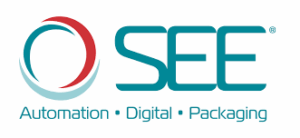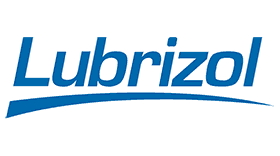The European industrial sector remains a cornerstone of the continent’s economy, representing more than 20% of EU GDP and employing tens of millions across manufacturing, engineering, energy, and materials. Built on a legacy of technical excellence and innovation, Europe’s industrial base continues to evolve through automation, sustainability, and digital transformation.
Spanning industries from chemicals and oil & gas to tooling, specialty gases, and equipment hire, the sector offers immense potential — but also significant complexity. Each market is shaped by national regulation, sustainability mandates, and varying degrees of technological adoption. For companies looking to enter or expand within the European or Global industrial market, success requires not only technical expertise but also deep local insight into regulatory, cultural, and competitive environments.
Market Size and Growth Potential
Europe’s industrial landscape is characterised by mature markets, strong export performance, and increasing digital integration. Major industrial economies — including Germany, France, Italy, the Netherlands, and the Nordic countries — lead in advanced manufacturing, engineering, and chemical production.
The sector is undergoing rapid transformation, driven by:
- The EU Green Deal and Fit for 55 targets promoting decarbonisation and circular manufacturing.
- Increased automation, robotics, and data-driven process control.
- Growing investment in industrial sustainability and renewable energy integration.
- Ongoing supply-chain restructuring to reduce dependence on non-European imports.
This transition offers opportunities for innovation and expansion — but requires adaptability and compliance across a fragmented regulatory landscape.
Key Industrial Sub-Industries (where 2Europe have experience)
Chemicals
Europe’s chemical industry is among the most advanced in the world, producing essential inputs for pharmaceuticals, manufacturing, construction, and agriculture. Sustainability pressures and stricter safety regulations, such as REACH and CLP, continue to shape the sector. Growth opportunities lie in bio-based chemicals, recycling of plastics, and low-carbon production technologies. For new entrants, localisation, environmental compliance, and supply-chain resilience are critical success factors.
Utilities, Oil & Gas
The utilities and energy industry — encompassing electricity, natural gas, and oil — is undergoing a profound shift toward renewable and cleaner sources. Europe’s oil and gas producers are diversifying portfolios to include hydrogen, carbon capture, and biogas. At the same time, utilities are modernising infrastructure with smart grid technology and digital metering. Entrants must navigate high regulation, fluctuating pricing, and growing public scrutiny regarding environmental impact.
Equipment Hire
The equipment hire market has grown steadily, driven by sustainability and flexibility goals. Companies in construction, engineering, and events increasingly prefer renting over ownership to reduce capital costs and environmental impact. Technology integration — such as digital fleet management, predictive maintenance, and online rental platforms — is transforming the industry. Success depends on logistics efficiency, service reliability, and local availability.
Specialty Gases
Europe’s specialty gases segment supports key sectors including healthcare, electronics, pharmaceuticals, and renewable energy. High-purity gases are essential for semiconductors, research laboratories, and medical applications. Growth is being fuelled by clean energy technologies, including hydrogen and carbon-capture processes. The market is highly technical and regulated, with strict safety, storage, and transport standards under ADR and ISO frameworks.
Gas Cylinders
Closely linked to specialty gases, the gas cylinder manufacturing and distribution industry plays a critical role in industrial and healthcare supply chains. Demand is rising for lightweight composite cylinders, smart monitoring systems, and hydrogen storage solutions. Manufacturers must meet rigorous quality standards and ensure traceability across Europe’s fragmented regulatory environment. Opportunities exist in both traditional industrial applications and emerging clean-energy systems.
Tooling
The tooling sector — including cutting tools, moulds, dies, and fixtures — is fundamental to Europe’s manufacturing strength. Automation, additive manufacturing, and advanced materials are reshaping production methods. European buyers prioritise precision, longevity, and energy efficiency. For suppliers, differentiation comes from innovation, customisation, and technical support rather than low-cost production.
Emerging and Fast-Growing Sub-Industries
Green & Sustainable Manufacturing
Driven by the EU Green Deal, sustainability is now central to industrial strategy. Companies are investing in low-carbon materials, recycling systems, and circular production models. Demand for carbon-neutral supply chains and transparent ESG reporting is reshaping procurement and supplier relationships.
Industrial Automation & Robotics
Automation and robotics adoption are accelerating across Europe, particularly in Germany, Italy, and the Nordics. Smart factories integrate sensors, data analytics, and AI to enhance productivity and safety. However, the cost of integration, workforce reskilling, and cybersecurity remain challenges for new entrants.
3D Printing & Additive Manufacturing
Additive manufacturing has moved from prototyping to large-scale production in industries such as aerospace, medical devices, and tooling. Europe leads in innovation around metal printing and biocompatible materials, creating new supply-chain efficiencies and customisation opportunities.
Hydrogen Economy & Clean Energy Transition
Europe’s commitment to a low-carbon future is driving the rise of the hydrogen economy. Industrial gases, utilities, and energy companies are investing heavily in hydrogen production, transport, and storage infrastructure. This emerging sector offers opportunities for suppliers of equipment, technology, and expertise supporting the energy transition.
Digital Industrial Platforms & IoT
The Industrial Internet of Things (IIoT) is transforming asset management, predictive maintenance, and process optimisation. By combining real-time data with automation, companies can increase efficiency and reduce downtime. However, achieving interoperability across diverse legacy systems remains a key challenge.
Market Entry Challenges
While the European industrial sector presents vast opportunities, it also poses substantial barriers to entry:
- Regulatory complexity: Varying safety, environmental, and quality standards across markets.
- Sustainability compliance: Increasing pressure to align with carbon-neutral and circular-economy goals.
- Fragmented distribution: Local networks and long-term relationships dominate procurement.
- High capital intensity: Cost of innovation, certification, and localisation can be substantial.
- Cultural and linguistic diversity: Successful entry requires tailored communication and support.
Supporting you with Expert Research
The European industrial market offers considerable potential for growth, innovation, and partnership across traditional and emerging sub-sectors. However, its complexity demands deep understanding, evidence-based decision-making, and local expertise.
At 2Europe, we provide the industrial market research that helps businesses understand demand, evaluate competition, and identify opportunities across Europe’s diverse industrial landscape. Whether exploring chemicals, utilities, gases, or advanced manufacturing, 2Europe delivers actionable insight to support strategic decisions, reduce risk, and accelerate market success.
Clients we have supported in this industry sector:
- Air Products
- SEE
- Lubrizol
- Zero Ignition
- Schneider Electric
- Affinity Water







